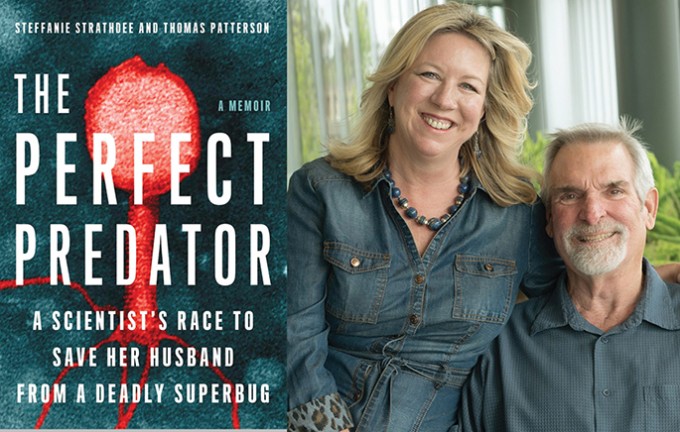Nursing Book Club
The Perfect Predator: A Scientist Races to Save Her Husband from a Deadly Superbug by Steffanie Strathdee and Thomas Patterson
The dangers of antibiotic resistance

There is probably nothing more terrifying than finding yourself in a remote area of a foreign country with a desperately ill loved one. Add to that doctors who seem at a loss for answers and in no rush to find any and you have all the ingredients for a nightmare.
That was exactly the scenario faced by UCSD epidemiologist Steffanie Strathdee, Ph.D., on a vacation in Egypt. When her husband’s health suddenly spiraled out of control, she was faced with doctors who were unable to diagnose or treat the problem; Egyptian tourist police more concerned with avoiding “an incident” than helping; and a travel health insurance plan with no local agents, forcing her to deal with the company by long-distance cellphone.
As her husband lost consciousness, Strathdee had to make some critical decisions. She assigned the rational part of her brain to tackle the problem while the emotional side was busy giving her husband support and contacting family.
Had her husband’s illness been readily treatable, that might have been enough, but things got more complicated when the doctors told her there were no combinations of antibiotics effective on his massive superbug infection.


